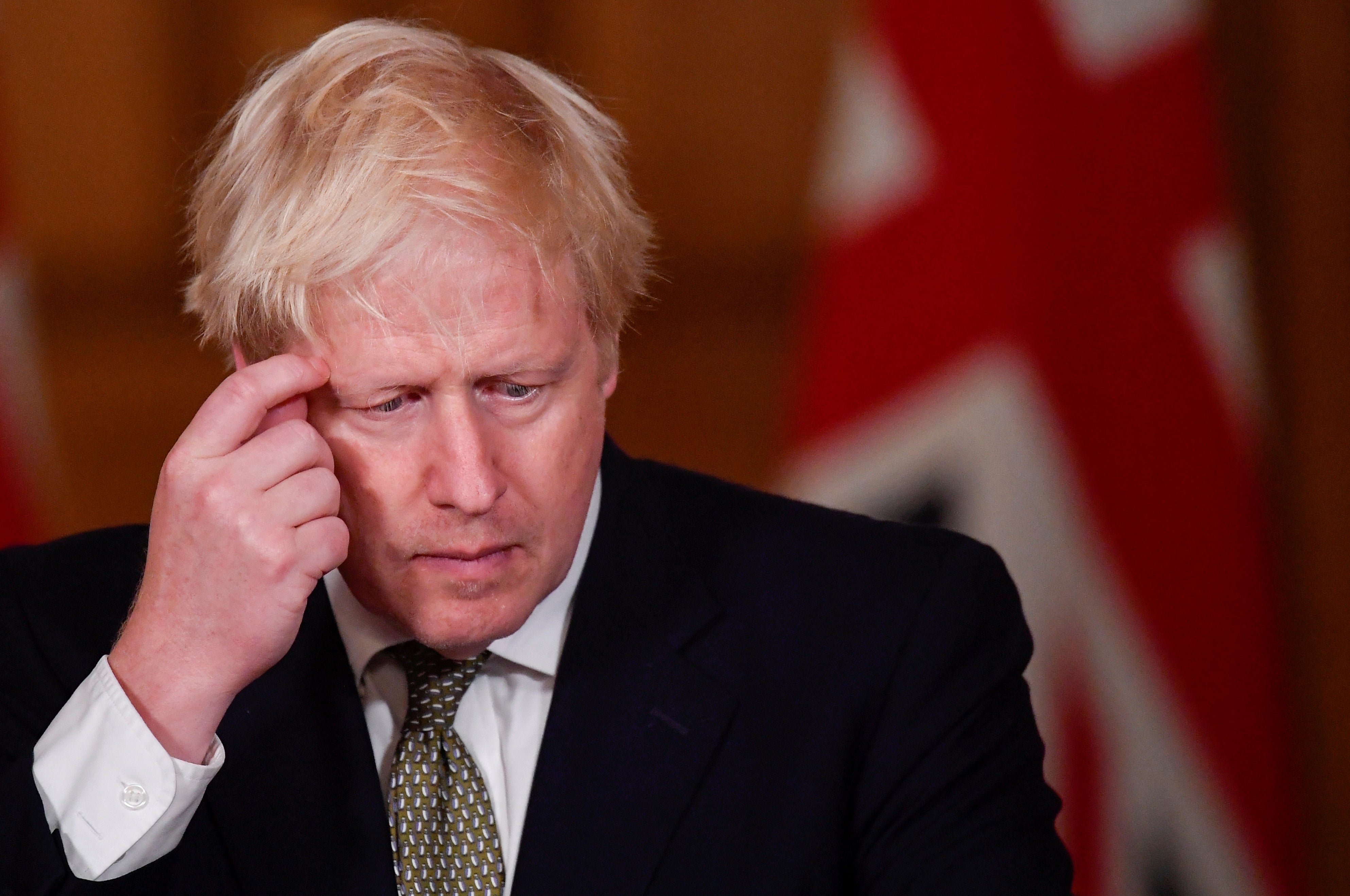Government’s test and trace system having ‘marginal’ impact and must grow at ‘same rate as epidemic’, Sage warns
Scientific Advisory Group for Emergencies (Sage) also urged ministers to consider severe restrictions, including ‘circuit-breaker’ national lockdown

The government’s test-and-trace system is only having a “marginal impact” on the spread of coronavirus, scientists advising ministers on the pandemic have warned in a damning assessment of the multi-billion pound programme.
Despite previously being described as “world-beating” by Boris Johnson, the top experts also warned the impact of test-and-trace will “further decline” unless it grows at the same rate as the epidemic.
The alarming evaluation of the system forms part of the latest documents released from the government’s Scientific Advisory Group for Emergencies (Sage) after the prime minister’s Covid-19 briefing on Monday evening.
Among the published minutes, the body also urged ministers to consider the immediate introduction of a two-week ‘circuit breaker’ lockdown, including the closure of pubs, bars and restaurants and banning households mixing.
The details emerged on the same day Mr Johnson warned that rising cases and hospital admissions are flashing like “dashboard warnings in a passenger jet” as he set out the new three-tier system for England – considerably short of Sage’s recommendations.
In a paper released on Monday evening the body, which is attended by observers from No 10, said an effective test, trace and isolate system is “important to reduce the incidence of infections in the community”.
However, of the current system, the scientists added: “Estimates of the effectiveness of this system on R [transmission rate] are difficult to ascertain.
“The relatively low levels of engagement with the system (comparing ONS incidence estimates with NHS Test and Trace numbers) coupled with testing delays and likely poor rates of adherence with self-isolation suggests that this system is having a marginal impact on transmission at the moment.
“Unless the system grows at the same rate as the epidemic, and support is given to people to enable them to adhere to self-isolation, it is likely the impact of test, trace and isolate will decline further in the future.”
The assessment will undoubtedly increase the pressure on Baroness Harding, the Conservative peer who chairs the £12 billion scheme, after figures last week also showed NHS Test and Trace had suffered its worst week for the proportion of contacts it successfully manages to track down and order to self-isolate.
Shadow health secretary Jonathan Ashworth said: "This is yet further evidence that the Government's incompetence is hampering our response to a second wave.
"Sage have essentially confirmed test and trace is not functioning adequately as we have been warning for months.
"Ministers need to get a grip of testing so we can get control of the virus."
Defending the government’s decision not to follow the recommendations of the advisory body last month, the communities secretary Robert Jenrick, however, told BBC Radio 4’s Today programme: “We have to take a balanced judgment - these are not easy decisions.
"But the prime minister has to balance protecting people's lives and the NHS from the virus while also prioritising things that matter to us as a society, like education and keeping as many people in employment as possible, and also ensuring that other health risks, like mental health and illnesses, don't get neglected as a result. That's the difficult but balanced judgment we are taking."
Mr Jenrick said ministers have taken the "right approach", adding: "We want to try, wherever we can, to avoid a blanket national lockdown that is incredibly damaging to people's lives and remember the rate of infection does vary very widely across the country.
Prime minister Boris Johnson’s official spokesman said: “If you look at the work which Test and Trace has done, it has now reached over 500,000 people who may otherwise have been at risk of unknowingly passing on the virus.
“It’s also doing very important work supporting local authorities, ensuring people can get a test where they need one and passing on contact-tracing data.”
Join our commenting forum
Join thought-provoking conversations, follow other Independent readers and see their replies
Comments



Bookmark popover
Removed from bookmarks